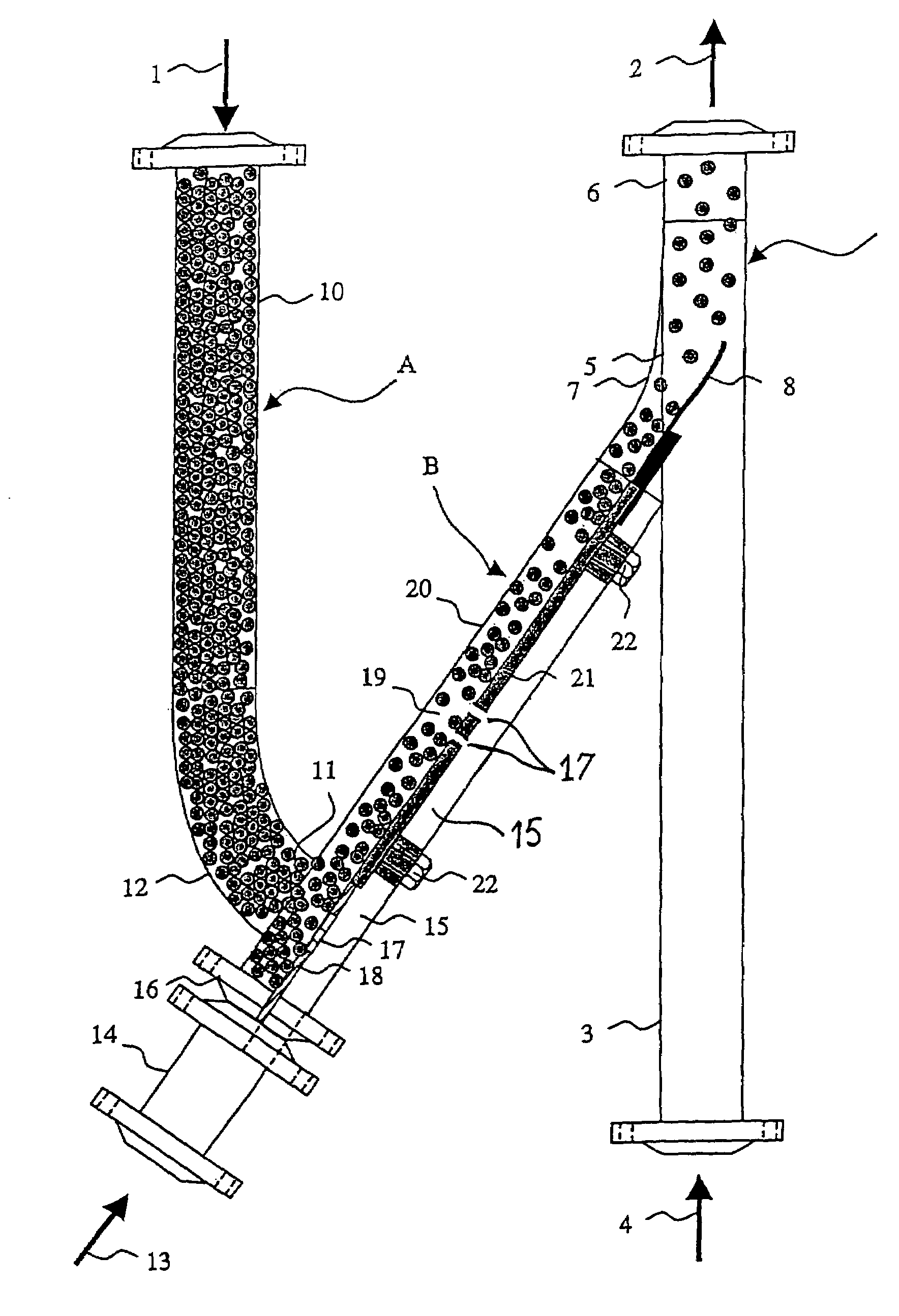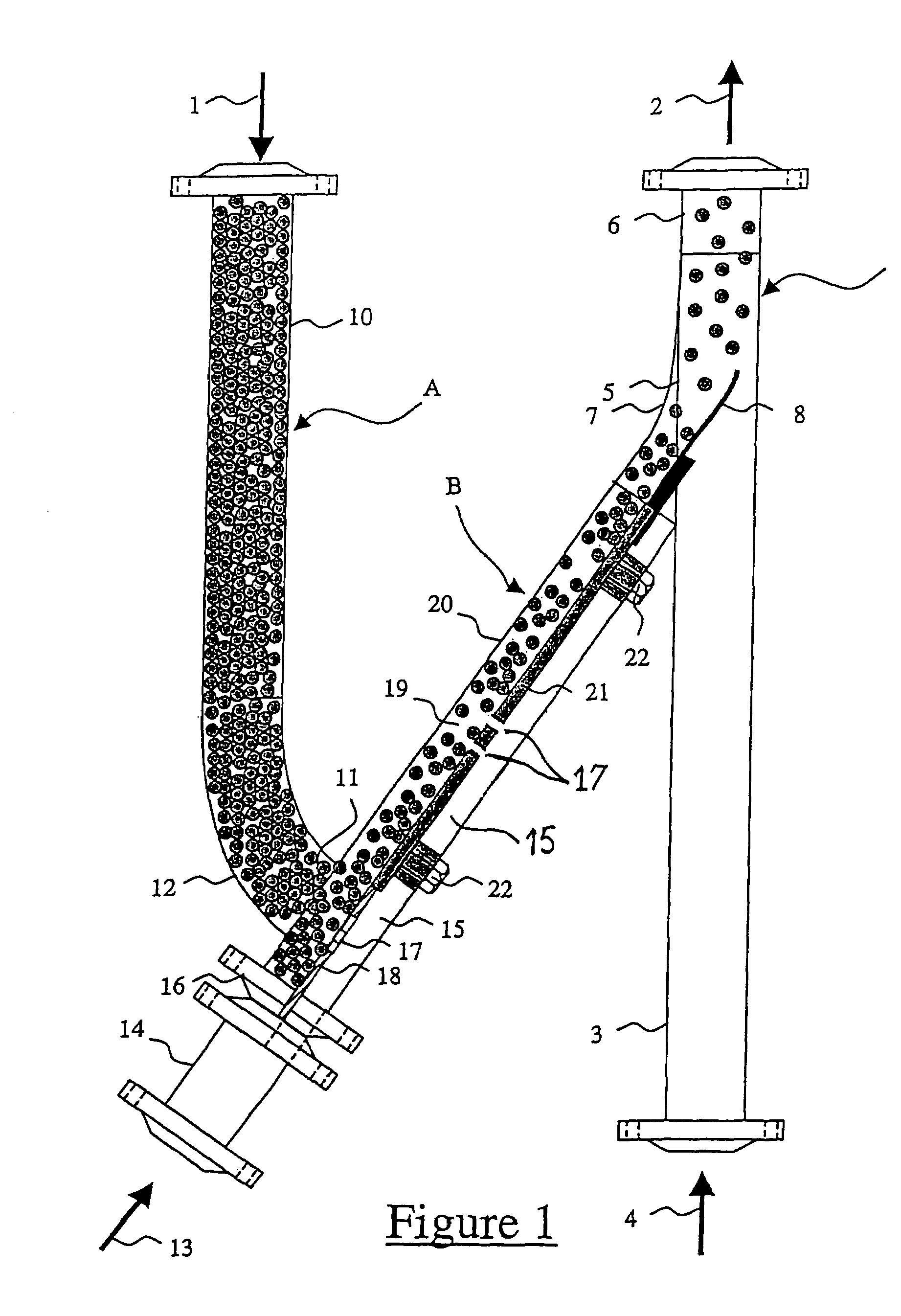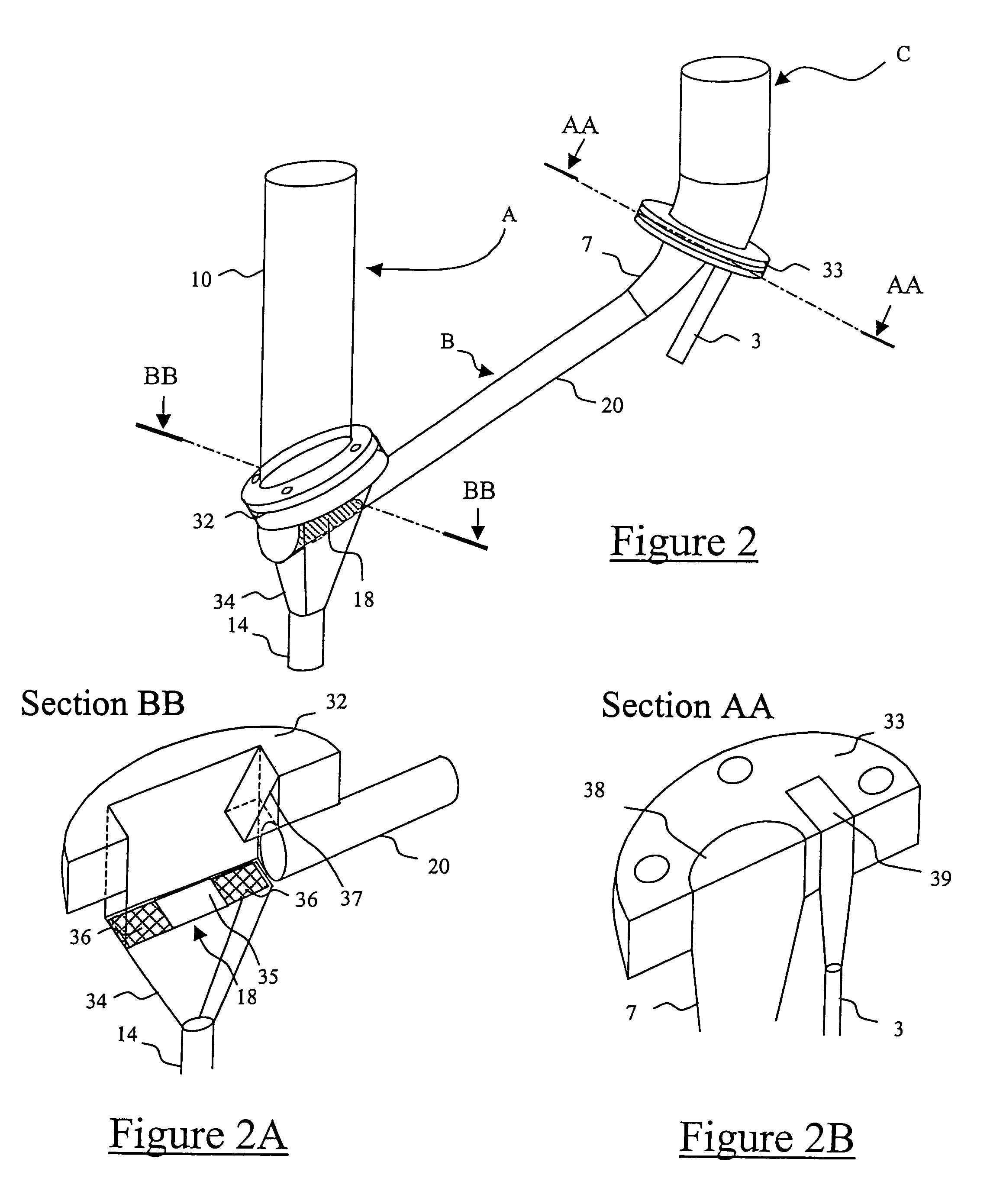Device for the transport of granular solid particles with a controlled flow rate
a flow rate controlled, granular particle technology, applied in the direction of measurement devices, instruments, chemistry apparatuses and processes, etc., can solve the problems of not being essentially constant and uniform, not being able to achieve satisfactory regulation, and generally not being completely satisfactory
- Summary
- Abstract
- Description
- Claims
- Application Information
AI Technical Summary
Benefits of technology
Problems solved by technology
Method used
Image
Examples
examples
[0055]Two devices that exhibit different configurations were used on a test-bed so as to measure the evolution of the flow rate of solid particles based on the flow rate of secondary gas and to determine the best embodiment for the regulation of the flow rate of solid particles.
[0056]The two devices A1 and A2 are produced on the basis of the embodiment exhibited in FIG. 1, with differences for A2, explained below, whereby these differences are linked to the position of the secondary-gas injection means and the flow direction of this gas.
[0057]Device A1 is exactly as shown in FIG. 1. A1 thus exhibits a transfer pipe (very inclined) whose angle relative to the upward vertical is 30 degrees, and secondary-gas injection means that comprise orifices mounted on the base of the flow zone in the dense phase opposite the opening of the feed portion. The secondary gas injection is therefore done in a direction that is essentially in counter-current relative to the flow direction of the partic...
PUM
 Login to View More
Login to View More Abstract
Description
Claims
Application Information
 Login to View More
Login to View More - R&D
- Intellectual Property
- Life Sciences
- Materials
- Tech Scout
- Unparalleled Data Quality
- Higher Quality Content
- 60% Fewer Hallucinations
Browse by: Latest US Patents, China's latest patents, Technical Efficacy Thesaurus, Application Domain, Technology Topic, Popular Technical Reports.
© 2025 PatSnap. All rights reserved.Legal|Privacy policy|Modern Slavery Act Transparency Statement|Sitemap|About US| Contact US: help@patsnap.com



